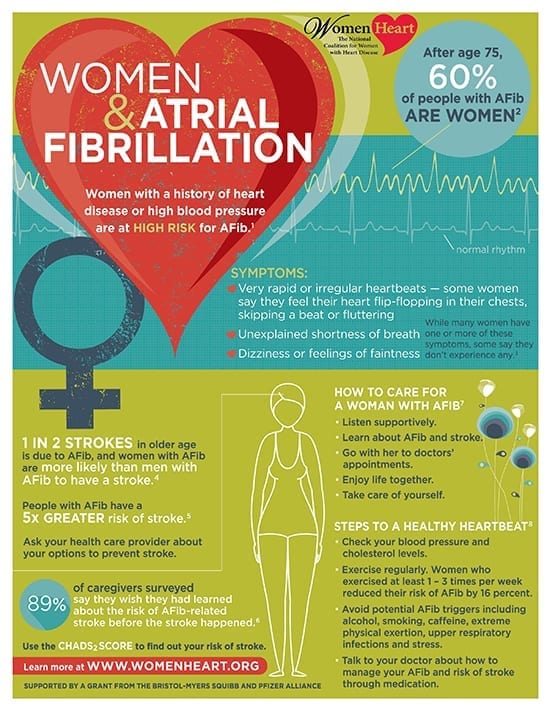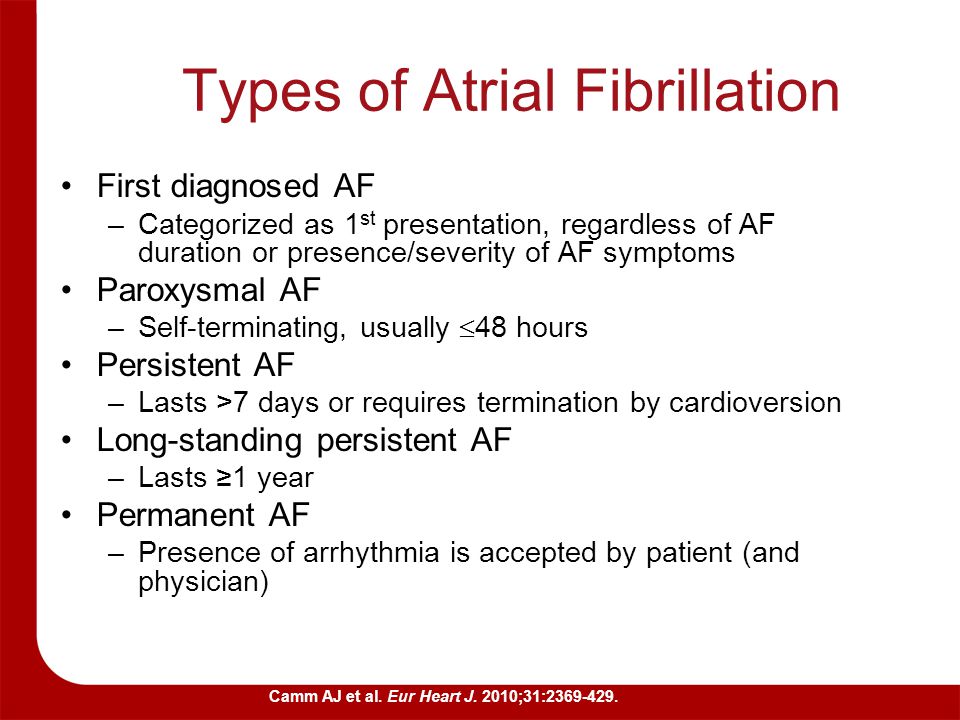
What is atrial fibrillation or AFib (pronounced ahfib) AFib is an irregular or shaky heartbeat (rhythm) that can lead to blood clots in your arteries, causing a heart attack or heart failure. If left untreated, it can cause stroke, paralysis, and even death. AFib can be classified into several types, depending on the cause of the abnormal heart rhythm.
One type of AFib is congenital. It is most common and occurs in infants and children who have not yet reached the age at which electrical impulses from the heart are established. This condition is usually found during routine check-ups or heart scans. In addition to this, if a person has had heart surgery or is undergoing treatment for an underlying medical condition such as angina, there is a high risk of congenital heart disease. In such cases, the person may have atrial fibrillation and require treatment, or they should see a cardiologist immediately.
Another type of AFib is called secondary AFib. Secondary AF is sometimes called secondary bradycardia, which can occur in adults as a result of the absence of a heart valve that causes the body’s first heartbeat — relaxation of the ventricular myocardium. Symptoms of this condition include shortness of breath, increased heart rate, and palpitations.
Other types of AFib are called symptomatic AFib. This is usually caused by health problems. This health problem is treated by eliminating the root cause of the problem and thus improving overall health. For example, when a person has a heart valve defect, they are usually referred to a cardiologist or prescribed medication to treat the symptoms of the problem. If a patient suffers from hypertension, they can be treated by lowering blood pressure with medication.
The presence of AFib can be diagnosed by performing a chest x-ray, electrocardiogram (ECG), electroencephalogram (EEG), and other tests. A blood test may also be done to determine if AFib is present. If these tests show abnormal heartbeats, you may need a procedure called "pacing" or an EKG.
The third type of AFib is known as non-ischemic AFib. This condition is characterized by an irregular heartbeat caused by problems with ventricular contractions. In other words, this is called hypotension. Patients with this condition may experience chest pain, chest discomfort, nausea, and sweating.

Patients with any of the above conditions should first consult with their physician before undergoing any treatment. They may have a better prognosis if diagnosed early. In addition, the doctor should do an EKG or other tests to rule out other conditions that may be causing AFib.
If you experience any symptoms after being diagnosed with any of these conditions, it is recommended that you see your doctor immediately. If you feel any symptoms suggestive of an AFib condition, you should see a cardiologist immediately to avoid complications and ensure proper treatment.
You can ask for a second opinion to check the AFib diagnosis. Some cardiologists prefer to have a chest x-ray and ECG to confirm the diagnosis. They may also like to have a procedure called paragangliagal echocardiography, or PEG. This procedure helps detect abnormal electrical signals in the heart.
If you suffer from any of these conditions, your doctor may recommend the use of a pacemaker or even surgery to treat them. If you feel any symptoms, you should inform your doctor as soon as possible and receive appropriate treatment.
A person with AF may also be prescribed oral medications, intravenous medications, and / or surgery. Oral medications prescribed by a cardiologist include amitriptyline, bupropion, and niacin. These medicines are used to treat hypotension.
In addition to these medications, surgery can also be used in the case of a pacemaker. If the patient suffers from any other underlying medical condition, such as diabetes, they may also choose surgery to correct the problem.